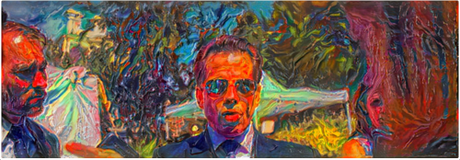
Etymologically, schizophrenia comes from Greek skhizein and phren mind, so literally means split mind, and in colloquial speech, the term ‘schizophrenic,’ is often is used to refer to someone with multiple personalities. (A condition now referred to as dissociative identity disorder, which has itself become controversial.)
In reality, schizophrenia is a severe chronic mental health disorder with no cure. It often appears in early adulthood, affects roughly 1% of the population, and has nothing to do with multiple personalities at all. It’s symptoms are usually split up into three categories: positive, negative, and cognitive. These categories are important because medications used to treat schizophrenia can reduce positive symptoms, but give little relief to the “negative” or “cognitive” symptoms.
If you know a little bit about schizophrenia you probably associate it with the “positive” symptoms. According to the National Institute of Mental Health, “positive” symptoms include hallucinations (usually auditory such as hearing voices), delusions, thought disorders and movement disorders).
However, “negative” and “cognitive” symptoms can be just as disruptive to work or social life.
“Negative” symptoms include: flat affect (expressionless face and monotone voice), decreased feelings of pleasure, decreased speaking, and difficulty initiating or sustaining activities. “Cognitive” symptoms include problems with executive function (planning and self control), trouble focusing and paying attention, and problems with short-term or working memory. It’s important to note that people with schizophrenia usually experience some but not all of these symptoms.
So, where did the “paranoid” part come from in Scaramucci’s rant? To explain this we need to get into how these diseases are diagnosed.
Psychiatrists diagnose diseases like schizophrenia based on the symptoms that patients experience, using a standardized book call the Diagnostic and Statistical Manual of Mental Disorders usually referred to as the DSM. As research into psychiatric diseases progresses and medicine becomes increasingly based on evidence as opposed to clinical experience and theory (sorry, Freud), the American Psychiatric Association periodically updates the DSM. However, without strong biological mechanisms to explain and categorize diseases, their borders and sub-categories are somewhat arbitrary (but useful nonetheless in standardizing diagnoses between doctors and prediction where a medication is likely to help a patient).
Old versions of the DSM split up patients with schizophrenia into subcategories: paranoid, disorganized, catatonic, or residual. According to these older versions of the manual, paranoid schizophrenics would experience delusions or auditory hallucinations are present–usually persecutory d (e.g. the CIA is after me) or grandiose (e.g. I’m the greatest poet who ever lived), but paranoid schizophrenics would not suffer from thought disorders, disorganized behavior, or flat affect.
However, in 2013 the latest version of the DSM, all sub-classifications of schizophrenia were eliminated. According to clinical psychologist C. E. Zupanick, “The rationale for doing away with these subtypes is they are not stable conditions, and have not afforded significant clinical utility nor scientific validity and reliability.” So the categories were done away with because patients would shift from one category to another and they didn’t seem to help with diagnosis or treatment.
So is Reince “a fucking paranoid schizophrenic,” probably not, and calling him one is an insult to people who suffer from this debilitating condition. First of all, most people who suffer from mental illness want to be treated as people first and labeled by their condition second, so it’s more polite to refer to someone as a person with Autism than an Autistic. Second, in general, many with mental illnesses ask that their diseases aren’t trivialized in everyday speech. When you’re feeling down you aren’t “depressed,” if you like to stay organized you aren’t “OCD,” and if you’re distrustful and suspicious about what’s going on in the Whitehouse you aren’t “schizophrenic,” you’re paying attention. And this isn’t the first time someone’s been labeled schizophrenic just because they’re being sane in an insane place.
Advertisements
